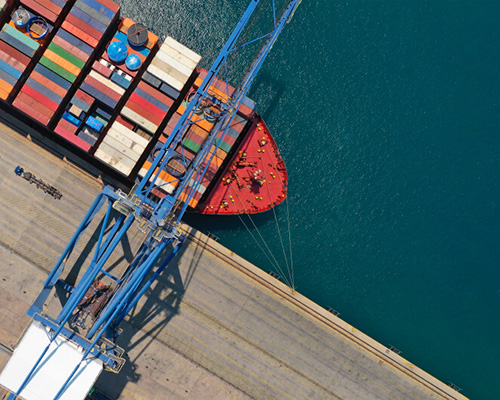Companies can balance profitability with ethical sourcing by implementing sustainable supply chain practices to drive long-term cost savings.

By Heidi Benko, VP Product Management and Strategy, Infor
Supply chain priorities are shifting. While cost is still an important factor when making purchasing decisions, it’s no longer the sole consideration driving business strategy. Instead, sustainability and ethical sourcing are taking center stage. Regulatory requirements and consumer expectations are driving the demand for more transparency regarding resource use and labor practices. Businesses increasingly need to source from suppliers with clean track records, fair labor conditions, and responsible consumption of water, energy, and raw materials.
As supply chain leaders adapt their supplier networks for sustainability, they must determine how and when profitability factors in. While committing to greener practices and enhanced tracking, the question remains: How can cost savings—or even revenue growth—balance out increased expenses?
When businesses look closer at their supply chains, they can discover opportunities. With the right software solutions, they can gain a comprehensive view of key supply chain factors, including sustainability, fair labor practices, costs, and profitability. A fully integrated supply chain ecosystem helps businesses make informed decisions, supporting reliable suppliers while maintaining financial viability. In many cases, sustainability initiatives can even lead to significant long-term savings.
Capgemini’s research backs this up. While transitioning to more sustainable ways of sourcing, producing, packaging, or distributing products might seem like an expensive undertaking, implementing the right sustainability measures can help cut costs over the long term.
Today’s supply chains are increasingly complex. As fuel prices, transportation costs, tariffs, and operating expenses continue to rise, buyers must stay vigilant about the evolving economic landscape, particularly the hidden costs that can quickly accumulate. In the rush to avoid disruptions and meet deadlines, it’s easy to lose track of budgets. Without proper controls, businesses can experience cost spikes that eat into profits.
At the same time, while essential, sustainability initiatives can also introduce additional costs. Setting up systems to reduce emissions, treat wastewater, recycle waste, and optimize energy use often means upgrading equipment and investing in new technologies. These investments may ultimately be passed on to buyers.
But what many businesses miss is that the cost of doing nothing is often higher. Non-compliance with regulations can entail substantial fines or prevent goods from crossing borders. The costliest penalties often come from delays when customs officials take extra time to scrutinize forms and reports. Even more damaging, though, is the potential negative publicity surrounding suppliers linked to forced labor or unsafe working conditions, which can severely harm both the brand’s image and sales.
To avoid surprises and manage costs effectively, an end-to-end supply chain ecosystem offers real-time insights into inventory, shipments, and supplier performance. This helps businesses gain a holistic view and identify inefficiencies, minimize delays, and optimize resources. All while controlling costs and reducing disruptions.
In addition to external visibility, businesses can also improve internal operations for greater efficiency. Streamlining administrative tasks, eliminating redundancies, and equipping decision-makers with the right tools can help them operate more productively. By taking a proactive approach, businesses can ensure quick, well-informed decisions that help control costs and enhance overall performance.
Examining core manufacturing practices opens up even more opportunities for cost savings and sustainability. Focusing on energy efficiency, reducing waste, and using non-toxic materials can lead to both environmental and financial benefits. Simple measures like replacing harmful glues or fabric dyes with eco-friendly alternatives, or using lighter packaging, reduce environmental impact while lowering long-term production costs.
On a broader scale, modern supply chain solutions are helping businesses save resources and enhance efficiency. A key advantage is increased productivity through automation. By handling routine tasks like processing customs forms or managing inventory, it frees up teams to focus on complex decisions that need human insight. With traceability tools supporting compliance, operations become even more streamlined.
Adopting energy-efficient practices in warehouse management also brings substantial cost savings and reduces carbon footprints. Retrofitting warehouses with energy-saving technologies like LED lighting, solar panels, and efficient HVAC systems may require an initial investment but leads to long-term reductions in energy costs. These improvements also enhance a company’s ESG credentials, which can attract investors and improve brand reputation.
Finally, bringing in automation technologies like robotic equipment and data-driven inventory management optimizes energy usage even more, making warehouses more sustainable and efficient.
Technology can help enhance productivity and mitigate rising costs in transportation, materials, and infrastructure investment. Advanced supply chain solutions enable businesses to meet sustainability goals while maintaining cost-effective strategies. This means making ethical purchasing decisions without jeopardizing businesses’ cash flow.

About the Author:
Heidi Benko is VP of Product Marketing and Strategy for Infor Nexus. Heidi has over 25 years of experience in supply chain product management, solutions strategy and marketing delivering innovative supply chain solutions to companies across industries that help them transform their supply chain operations.
Read more from the author:
The Supply Chain is as Strong as Its Three Links: Physical, Digital, and Financial | Talking Logistics, Sept 10th, 2024
EFL Global on the road with Infor Nexus | Intelligent CIO, November 16, 2023
Scott Ellyson, CEO of East West Manufacturing, brings decades of global manufacturing and supply chain leadership to the conversation. In this episode, he shares practical insights on scaling operations, navigating complexity, and building resilient manufacturing networks in an increasingly connected world.